Have you ever lain awake at night, gripped by the fear of losing someone you love? It’s a poignant question, striking a chord deep within, making us reflect on our most cherished relationships.
It’s this visceral emotion, both beautifully human yet often distressing, that we will explore today. The better we are able to understand this innate fear, the better we will be able to learn how to overcome the fear of losing someone you love.
The Intricate Web of Human Connections
From the moment we are born, we form attachments. These relationships, whether with our parents, siblings, friends, or romantic partners, shape our existence. The fear of losing someone you love can often be traced back to childhood experiences, perhaps being separated from a parent or losing a childhood pet.
The thought of such a profound void can create anxiety. Those childhood memories of feeling lost in a supermarket, even for just a minute, can be petrifying and leave an indelible mark on our psyche.
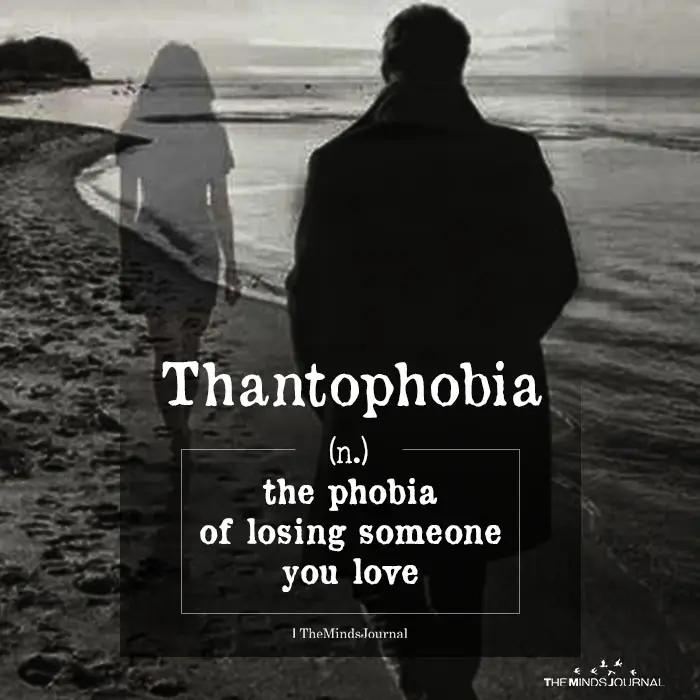
Consider Anna, a vivacious five-year-old. Once, during a family outing, she lost sight of her parents. That brief moment felt like an eternity. As an adult, Anna still recalls the palpable fear she felt, demonstrating how such early experiences lay the groundwork for future anxieties.
Related: How To Give Someone Space Without Losing Them?
The Domino Effect in Our Daily Lives
What happens when fear takes over? The fear of losing someone in a relationship doesn’t always linger silently. It actively infiltrates our daily routines, choices, and interactions.
It can give rise to negative emotions and behaviors, such as jealousy, possessiveness, and constant anxiety. It can impede our ability to function daily, question our decisions, or make us overcompensate in relationships.
Steve, deeply in love with his partner Tammy, found himself inundated by fears of her leaving him. This led to him obsessively checking her social media, asking about her day in extreme detail, and feeling irrationally jealous of her male colleagues.
Tammy, unaware of the depth of his fears, mistook it for mistrust, causing tensions in their relationship.
Decoding the Origins of Our Fears
Why do you have an intense fear of losing someone you love? Is it due to existential realities and personal insecurities?
Death, change, and the unpredictable nature of life are existential truths we all grapple with. Combine this with personal insecurities, past traumas, or experiences, and it amplifies the fear of losing someone in a relationship.
The unpredictability of life, combined with personal traumas, can amplify our inherent fears. Every news story about accidents, every movie that centers around loss, or even hearing about someone else’s misfortune can act as triggers.
Read The Chilling Truth Behind The Butterfly Apple Optical Illusion: Your Darkest Fears Revealed
The psychology of the fear of losing someone you love
The fear of losing someone in a relationship is a profound and deeply ingrained emotion that has its roots in both our evolutionary past and our personal histories. Here are several psychological perspectives on this fear:
1. Attachment Theory
Proposed by John Bowlby, this theory posits that humans are born with an innate need to form close emotional bonds with primary caregivers, usually parents. This attachment ensures survival, as infants rely on caregivers for sustenance, protection, and care.
As people mature, this need for attachment transitions to romantic partners, friends, and children. The fear of losing these attachments can cause significant distress because these relationships fulfill deep emotional needs.
2. Evolutionary Perspective
From an evolutionary standpoint, being attached to family members and loved ones had survival benefits. Those who were closely bonded were more likely to protect and care for one another, thereby increasing the chances of survival.
The fear of loss might have evolved as a mechanism to keep us close to those who can help us survive and reproduce.
3. Existential Psychology
This perspective suggests that our fear of losing a loved one is rooted in our own fear of mortality. Being reminded of the impermanence of life can trigger existential anxiety.
When we deeply love someone, the thought of losing them brings us face to face with our own transience and the ephemeral nature of existence.
4. Neurobiological Perspective
The intense bonds we form with loved ones are associated with the release of certain chemicals in the brain, such as oxytocin and dopamine.
These chemicals are associated with pleasure, bonding, and well-being. The potential loss of a loved one threatens this neurochemical balance, leading to distress.
5. Past Trauma
Individuals who have experienced loss or abandonment in the past, especially during childhood, may be particularly sensitive to the fear of losing someone again. Their past traumas can amplify the normal anxieties associated with loss.
6. Cognitive Perspective
Sometimes, the fear of losing a loved one can be exacerbated by cognitive distortions. For example, someone might engage in “catastrophic thinking”, where they always imagine the worst-case scenario.
If these cognitive patterns are left unchecked, they can contribute to heightened anxiety about loss.
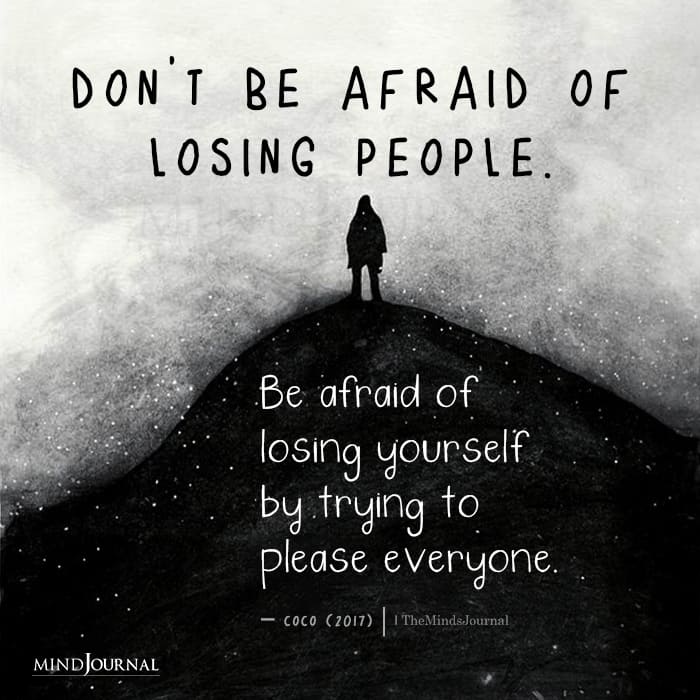
7. Cultural and Social Factors
Our understanding and expression of grief and loss are heavily influenced by cultural and societal norms. Some cultures emphasize the permanence of relationships and the afterlife, while others may focus more on the transitory nature of life.
Furthermore, media and literature often romanticize the tragedy of lost love, which can shape our perceptions and fears.
8. Personal Identity and Self-concept
For many, close relationships form a significant part of their self-concept. The potential loss of a loved one can feel like losing a part of oneself, leading to an identity crisis.
It’s important to note that a moderate amount of fear or anxiety about losing loved ones is normal and can even be adaptive, reminding us to cherish the time we have with them.
However, when this fear becomes debilitating or obsessive, it can be indicative of deeper psychological issues, and professional counseling might be beneficial.
Related: Why You Can’t Properly Love Her if You’re Afraid to Lose Her
The Anatomy of Fear: Julia’s Story
The fear of losing someone you love is a complex emotion that intertwines personal experiences, biological instincts, and cultural influences. This case study delves into the psychological facets of this fear, illustrated through the life of “Julia”, a 32-year-old woman.
Julia is a successful marketing professional living in a metropolitan city. She is in a committed relationship with “Sam”, her partner of five years. Despite their strong bond, Julia often finds herself gripped by the fear of losing Sam, manifesting as anxiety, intrusive thoughts, and occasionally, controlling behaviors.
Analysis of Julia’s Fear:
1. Past Traumas
At the age of nine, Julia unexpectedly lost her mother to a sudden illness. This traumatic event was her first brush with the unpredictable nature of life and the fragility of human connections.
Psychologically, such early life experiences can create schemas – mental frameworks – that shape one’s response to similar scenarios in the future.
2. Attachment Styles
Based on her childhood experiences, especially the sudden loss of her mother, Julia developed an anxious attachment style. Such individuals often fear abandonment and can become overly concerned about their relationships.
3. Biological Factors
From an evolutionary standpoint, forming close bonds and fearing their dissolution is a survival mechanism. Humans are social creatures, and our ancestors relied on close-knit groups to survive.
The fear of being isolated or losing a loved one might have meant danger or decreased survival chances in primitive times.
4. Societal Pressures
The society Julia lives in places a strong emphasis on romantic relationships as a hallmark of adult success. Such cultural norms can exacerbate individual fears of loss or being alone.
5. Personal Identity and Self-worth
Julia often defined her self-worth based on her relationship status. She viewed her partnership with Sam as a significant achievement, intensifying the fear of its potential loss.
Addressing her fears
To learn how to overcome the fear of losing someone you love, Julia sought therapy. Cognitive Behavioral Therapy (CBT) was particularly beneficial.
1. Recognizing Cognitive Distortions
Julia was taught to identify and challenge her negative thought patterns, such as catastrophizing or black-and-white thinking.
2. Exploring Past Traumas
Therapy provided a safe space for Julia to revisit and process her mother’s sudden demise, understanding its impact on her current fears.
3. Building Self-worth
Julia engaged in activities that bolstered her individual identity and self-esteem outside of her relationship.
4. Understanding Attachment Styles
Recognizing her anxious attachment pattern allowed Julia to address her fears more rationally.
Julia’s journey provides insight into the multifaceted nature of the fear of losing someone you love. While individual experiences can vary, understanding the interplay of past traumas, attachment styles, biology, societal pressures, and self-worth is crucial.
With the right interventions, it’s possible to navigate this fear, ensuring it doesn’t compromise the quality of one’s relationships or overall well-being.
Related: How to Continue Being Yourself In A Relationship
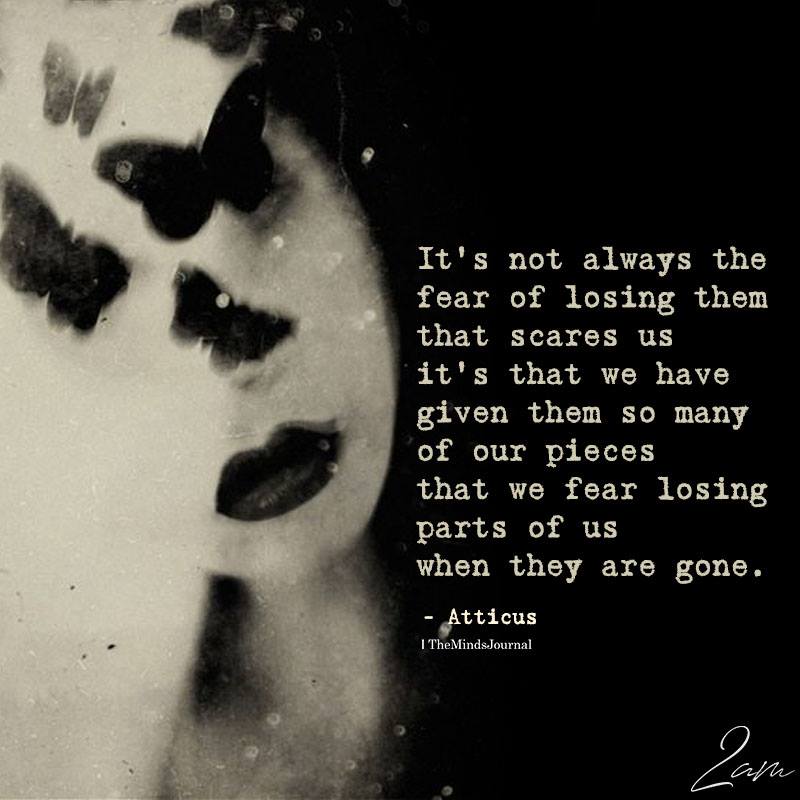
How to Overcome the Fear of Losing Someone You Love
Overcoming the fear of losing someone you love is a challenging but necessary journey. This fear, if left unchecked, can be debilitating and hinder the quality of the relationship and your overall well-being.
Here’s a detailed guide on how to overcome the fear of losing someone in a relationship:
1. Acknowledge Your Feelings
Before addressing the fear, it’s essential to accept its presence. Denying or suppressing it only makes it grow stronger. Understand that it’s natural to fear loss, especially when you deeply care about someone.
2. Communicate Openly
Speak with the person you fear losing about your feelings. Sharing your vulnerabilities strengthens the bond and can offer reassurance. They might share their feelings, too, which can provide a fresh perspective and understanding.
3. Seek Therapy
Sometimes, the fear is deep-seated, stemming from past traumas or unresolved issues. Individual or couples therapy can help address the root causes, provide coping mechanisms, and allow for emotional healing. This is how to overcome the fear of losing someone you love.
4. Practice Mindfulness and Meditation
Mindfulness practices, such as meditation, can help ground you in the present moment. Often, our fear stems from either past experiences or anxieties about future possibilities.
Being present alleviates these anxieties and helps you cherish the current moments with your loved one.
5. Strengthen Your Self-worth
Sometimes, the fear of loss is tied to feelings of inadequacy or low self-esteem. By working on your self-worth—through self-affirmations, setting boundaries, or celebrating personal achievements—you can lessen the fear derived from a perceived “lack” within yourself.
6. Stay Connected with Others
While it’s natural to deeply connect with someone, it’s also vital to maintain other relationships and connections. This diversifies your emotional investments and reduces the pressure on a single relationship.
7. Accept the Nature of Life
Life is unpredictable and ever-changing. Accepting its impermanence can be a philosophical but practical approach.
This doesn’t mean anticipating loss, but understanding that change is inevitable. This acceptance can bring a sense of peace.
8. Educate Yourself
Reading about attachment styles and understanding where your fears stem from can be enlightening.
Books like “Attached” by Amir Levine and Rachel Heller offer insights into how different attachment styles can influence our fears and behaviors in relationships.
9. Engage in Personal Development
Personal growth activities, be it attending workshops, reading books, or joining support groups, can equip you with tools to handle such fears. The more you understand yourself, the better equipped you are to deal with intense emotions.
10. Limit Exposure to Triggers
If certain movies, books, or conversations exacerbate your fear, it’s okay to limit or avoid them. Over time, as you work on your fear and build resilience, these triggers might affect you less.
Related: The Joy and Terror Of Losing Yourself in Relationship
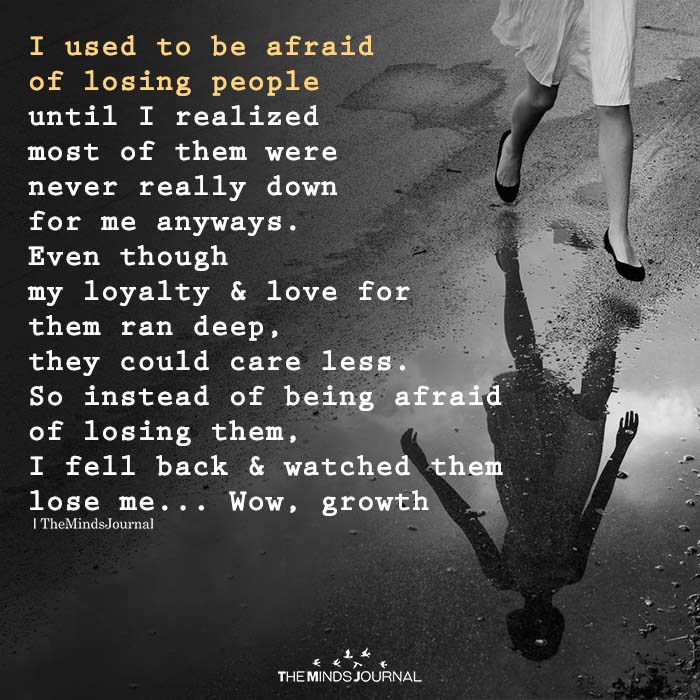
Transforming Fear into Love
It’s essential to remember that while fear is powerful, love is even more so. The fear of losing someone you love, when channeled correctly, can lead to deeper connections, better understanding, and a heightened appreciation of the moments we share.
With the right tools and mindset, we can transform our fears into a force of love and positivity. So embrace love, cherish the moments, but remember to work on your personal growth and emotional well-being simultaneously.
With time, patience, and consistent effort, it’s possible to navigate and overcome this fear.
Frequently Asked Questions (FAQs):
What is fear of losing someone you love called?
The fear of losing someone you love is often referred to as “Philophobia” or “Autophobia,” both expressing fear of attachment loss.
How do I stop being afraid of losing someone I love?
Communicate openly. Build trust. Seek professional help if necessary. Practice mindfulness. Focus on self-care. Embrace uncertainty with resilience.
Why do I have a fear of losing a loved one?
Fear of losing a loved one often stems from attachment issues, past traumas, insecurity, or anxiety about the unpredictable nature of life.
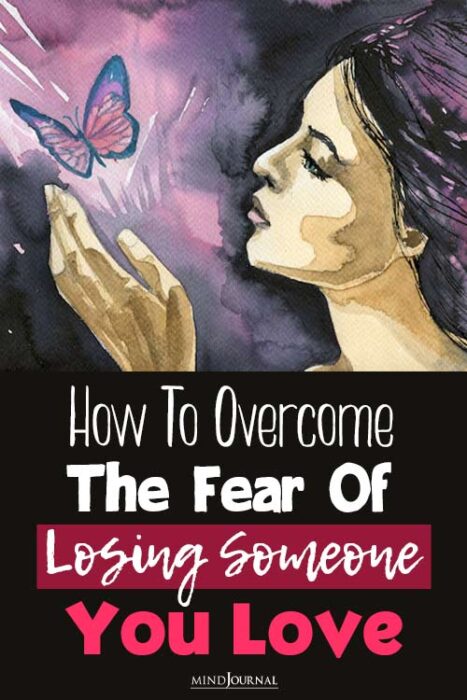
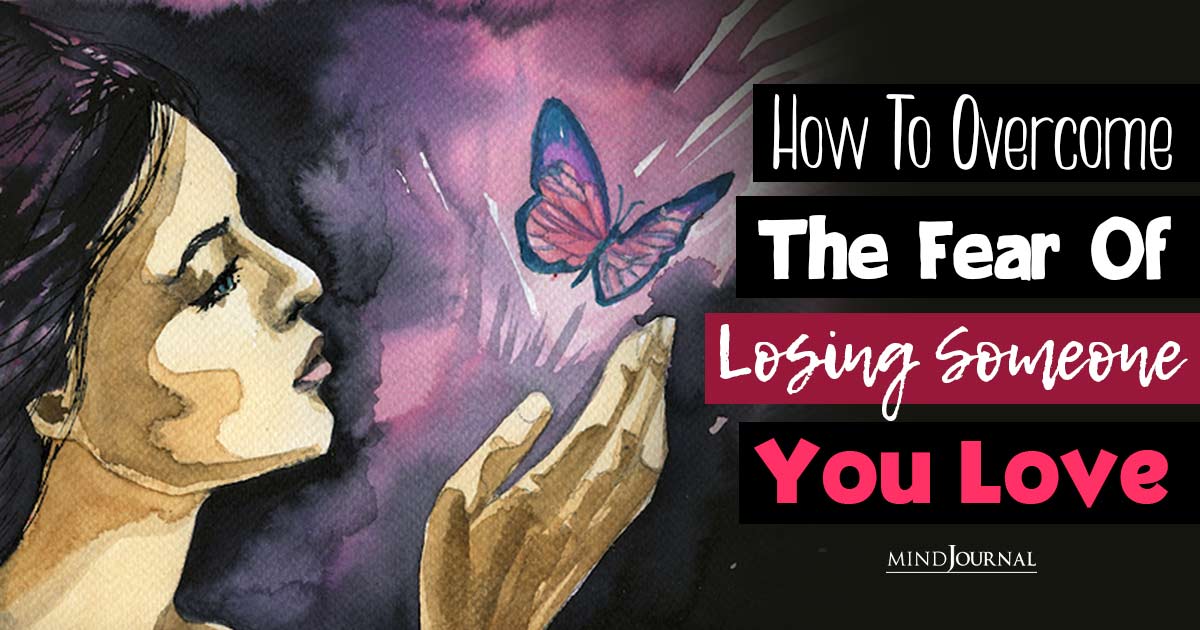





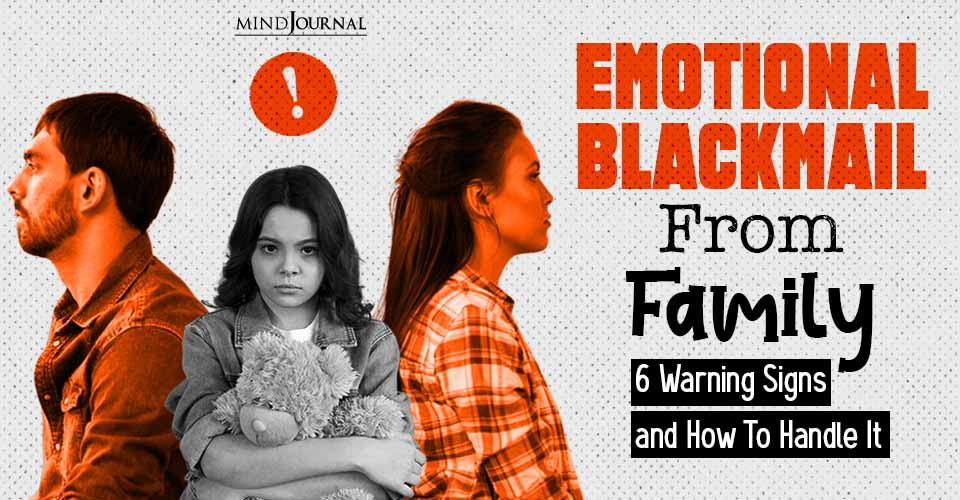
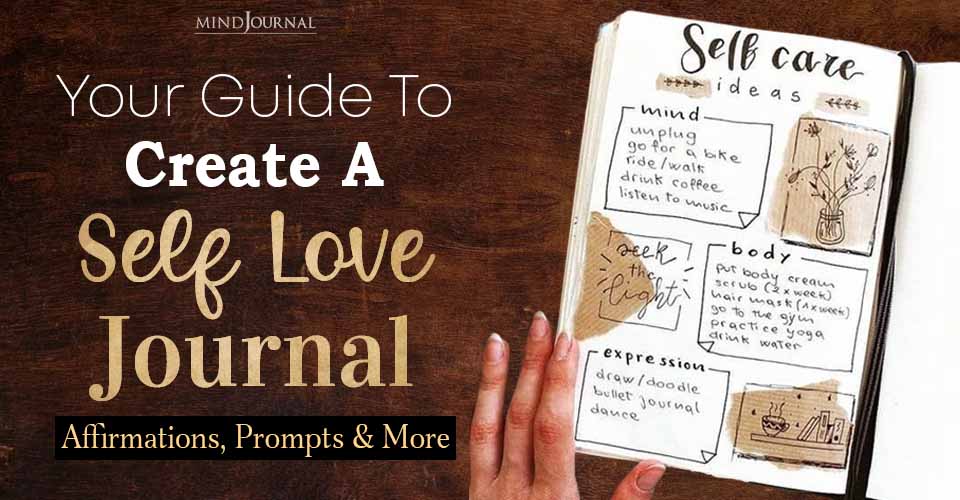
Leave a Reply
You must be logged in to post a comment.